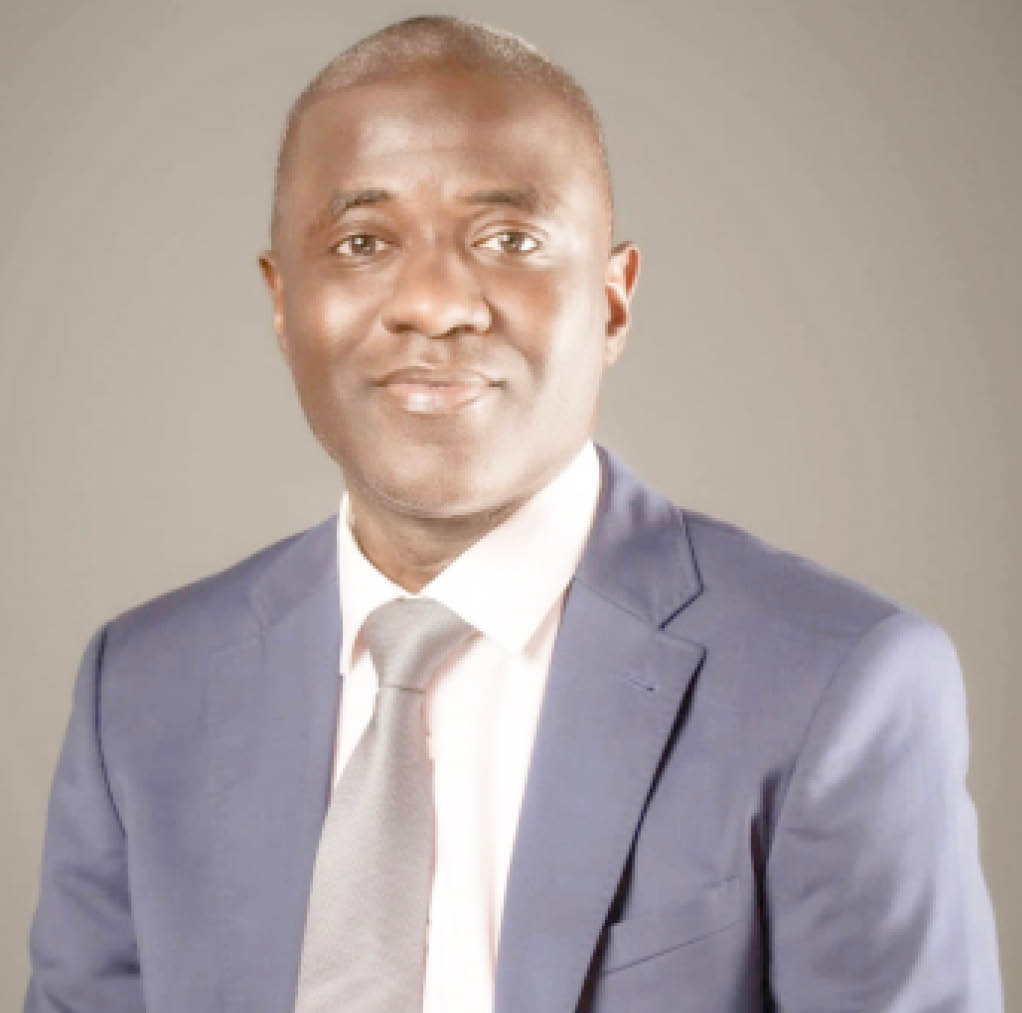The insecurity in various parts of Nigeria has continued to deteriorate despite the Subscriber Identity Module (SIM)-National Identity Numbers (NIN) synchronisation introduced on December 16, 2020, Daily Trust on Sunday can report.
The federal government had assured Nigerians that the SIM-NIN linkage would enable security agencies to track criminals.
Former President Muhammadu Buhari had, on May 6, 2021, noted that the synchronisation of NINs nationwide was crucial to providing digital framework to combat insecurity
Buhari, while launching the National Policy for the Promotion of Indigenous Content in Nigerian Telecoms Sector and Revised National Identity Policy for SIM Card Registration in Abuja at that time, had urged Nigerians to participate in the synchronisation exercise.
- How has the anti-graft war shaped two generations? (2)
- Governor Alia’s pragmatism and Senator Abba Moro’s fist-in-gown
“The NIN will cover one of the weaknesses in our security structure. We will be able to easily identify and know the personality of Nigerians. We will identify people easily, including the crooks,” he had said.
Buhari pointed out that the project would support efforts to enhance security and develop the economy.
“NIN is the foundational digital ID for the country. Both Nigerian citizens and legal residents are expected to obtain the special number. It will provide access to government services and give government useful insights that would enable us to utilise scarce resources in a more efficient way,” the former president had assured.
However, more than three years after the SIM-NIN synchronisation was introduced, bandits and other criminals have abducted and killed thousands of persons in various parts of the country.
Almost in all cases, the criminals reached out via mobile telephone lines to victims’ families, who paid huge amounts of money as ransom.
A data gathered by Daily Trust on Sunday, based on media reports, indicated that between December 16, 2020 and January this year, a total of 12,586 persons were kidnapped across states and the Federal Capital Territory (FCT.

In 2020 alone, 2,242 persons were reportedly abducted; 4,987 in 2021; 2,076 in 2022; 3,063 in 2023 and 206 so far this January.
Within the period under review, bandits were reported to have killed a total of 10,012 persons across the country: 837 in 2020; 4,169 in 2021; 2,310 in 2022; 2,586 in 2023 and 110 in January 2024.
These are aside from the reported killings of 1,569 persons by Boko Haram insurgents in the North East within the period: 747 in 2020; 260 in 2021; 192 in 2022; 268 in 2023 and 12 so far in this month.
Findings by Daily Trust on Sunday show that about 13 million of active SIM cards are yet to be linked to their owners’ NINs.
Sources at the National Identity Management Commission (NIMC), who spoke to one of our reporters, put the total number of active voice subscribers in Nigeria at 221,769,883.
The Communication Commission (NCC) had, in September last year, hinted that about 12.3million active SIM cards were yet to be linked to their owners’ NINs.
“The number may have surpassed 13million this January because many SIMs were sold between November and now,” a credible NCC source said.
The rising spate of kidnapping and killings in the country is casting doubt on whether the SIM-NIN linkage policy is being utilised for the purpose for which it was introduced.
The immediate past Minister of Communication and Digital Economy, Isa Pantami, in a tweet last Sunday, said the failure by the security agencies to utilise the generated data from the SIM-NIN synchronisation had encouraged kidnapping, banditry and other criminalities.
He had, earlier in a tweet, disclosed that a friend of his raised N50 million as a donation for the N100 million ransom demanded by the captors of six sisters and their father in Abuja.
The former minister was replying to one Roland Metus, who had questioned a former presidential aide, Bashir Ahmad, who had expressed concern about the alarming rate of kidnapping and banditry in the country.
In his response, Pantami said, “The NIN-SIM policy has been working. However, the relevant institutions fighting criminality are to be requested to ensure they utilise it effectively when crime is committed.”
He said the policy was not the problem but the non-utilisation from the relevant agencies.
“Lack of utilising it is the main problem, not the policy. While in office, I know three instances where the policy was utilised, and it led to the success of their operations.
“On the lack of utilisation, I am more worried than anyone as my life was threatened by criminals for reintroducing it, including on the BBC Hausa and national dailies. I resisted and ensured its implementation. If it is not being utilised by the relevant institutions in charge of securing lives and property, then I am more frustrated than any person as I sacrificed my life and ignored all threats to life,” he said.
A security sector reform expert, Chukwuma Ume, in an interview with one of our correspondents, said the security agencies have access to NINs, as well as the technology to track criminals.
He, however, said the criminals outsmarted the security agencies by using victims’ SIM cards to make calls demanding ransom.
He also cited sharp practices by officials of regulatory agencies who, according to him, cut corners in discharging their duties.
“The thing is that the security agencies have access to NIN, and I want to believe they have technology to use for tracking. But what I know is that once these criminals take an oath, they retreat into the bush, and once they retreat into the bush, it is a familiar terrain to them.
“What can happen at that point would be to wait until they come out. But they are also smart. They don’t use their own SIM cards, they use victims’ SIM cards. So, immediately after the operations and after the victim is either released or killed, the security agencies cannot be tracking a SIM card that belongs to the victim. They (kidnappers) are very smart.
“On the issue of ‘self-right’ – the name of the technology – it
was mostly used by Abba Kyari (a suspended Deputy Commissioner of Police and former head of the Inspector-General of Police Intelligence Response Team (IRT) who is standing trial on cocaine-related charges alongside four members of his former police unit) and his team. Now, these bandits have devised a means to be one minute ahead of the game.
“Like I said, for emphasis purpose, they (bandits) don’t use their SIM cards. That aside, on using victims’ SIM cards, telecommunications companies themselves have failed to support the process of the government. That failure could be probably because they lack the capacity to document.
“If you notice it, you would have done the registration and you can have a situation where you will be asked to go and register again. This means that they (telecommunication companies) are not putting enough capacity towards that process or simply because they are being driven by the needs for benefits or profit.
“If they begin to implement that main requirement strictly, they will not sell. There is this thing of profit making, poor capacity and lack of patriotism on the part of the telecommunications companies,” he alleged.
Another security expert, Abdullahi Garba, called on the regulatory agencies to be serious and make things work for the citizenry.
He said, “In some other countries you cannot operate a telephone or anything towards that direction without proper documentation from day one. But here is a place where people cut corners. People are not doing what they are supposed to do.
“There is a limitation for the security agencies of pursuing criminals through the bush unless we are ready to incur collateral damage. It is a multifaceted thing. We blame our telecommunication companies and the law enforcement agencies.”
Countless infractions detected in NIN enrolment – NIMC
The Director-General of the National Identity Management Commission (NIMC), Engr Abisoye Coker-Odusote, had, in a statement on Thursday by her Technical Adviser on Media and Communications, Ayodele Babalola, revealed that countless infractions and unwholesome practices were detected in the NIN enrolment and modification processes.
Coker-Odusote had stated that most of the reports of infraction were done by some of the commission’s front-end partners.
“On assumption of office, we observed countless infractions and unwholesome practices in the NIN enrolment and modification services. Most of the reports of infractions, upon investigation, were done by some of our front-end partners,” she had said.
IT experts suggest solutions
An information technology expert, Martin Nwoga, who spoke with one of our reporters, said the federal government should allow telecommunication companies to use the Lawful Interception Management System (LIMS) so that they could monitor and track criminals and supply same to private security companies to act upon if police and other law enforcement agencies fail to do so.
LIMS is a modern monitoring solution for fixed and data networks. It is helpful for telecommunication and internet service providers to fulfill their legal obligation to intercept phone calls plus data, and to ensure privacy as much as possible.
Targeted monitoring of public communication services, such as telephone calls, mobile data and internet-based services such as e-mail, voice-over-IP, instant messaging, and so on becomes possible with LIMS.
The system acts as a link between the provider’s network and the law enforcement monitoring centres. The strict security measures prevent unauthorised access, secure all private user information, and relieve security checks through comprehensive logging.
Nwoga said, “If a semi-state agency could be set up to legally monitor devices and communications of suspected criminals, this would go a long way in solving crime.”
Also speaking to Daily Trust Sunday, the Chief Technology Officer (CTO) of Madjatek Pro Technology Company, AbdulMuizz Oyewole, an engineer, said the ongoing security challenges in Nigeria despite the SIM-NIN synchronisation, raised crucial questions about leveraging technology for public safety.
He stressed the need for streamlined protocols for security agencies to access and analyse NIN-SIM data promptly.
He also said data privacy concerns must be addressed through secure frameworks and oversight mechanisms.
“Law enforcement agencies need training and resources to effectively analyse and interpret the vast amount of data generated by NIN-SIM synchronisation. Advanced forensic tools, data visualisation techniques and deployment of artificial intelligence can play a crucial role here,” Oyewole said.
Oyewola, who is a Microsoft certified expert, noted that inter-agency collaboration is highly necessary as lack of operational synergy limits effectiveness.
He described having a central intelligence unit integrating data from various agencies and fostering real-time information sharing as essential.
He said that beyond NIN-SIM synchronisation, the government could utilise information technology in several other ways like deploying large number of Advanced Surveillance Systems (CCTV) networks and drone surveillance with facial recognition and automated anomaly detection in high-risk areas and integrate these systems with real-time communication tools for rapid response.
“Another strategy is for us to develop multi-channel platforms, such as web app, mobile app, toll-free lines, SMS and USSD for citizen reporting, where citizens can anonymously report suspicious activity or emergencies across the country,” he said.
Oyewole said this would help create a network of eyes and ears for law enforcement agencies.
He also suggested that cyber safety awareness be inculcated in civic education curriculum in basic and secondary schools and general studies in tertiary institutions, with practical session demonstration.
Police, DSS silent on alleged non-utilisation of SIM-NIN linkage
Efforts by Daily Trust on Sunday to get comments from both the Nigeria Police Force and the State Security Service (SSS) proved abortive as calls and messages to their spokespersons were neither answered nor replied.
By Idowu Isamotu, Zakariyya Adaramola & Haruna Ibrahim

 Join Daily Trust WhatsApp Community For Quick Access To News and Happenings Around You.
Join Daily Trust WhatsApp Community For Quick Access To News and Happenings Around You.

